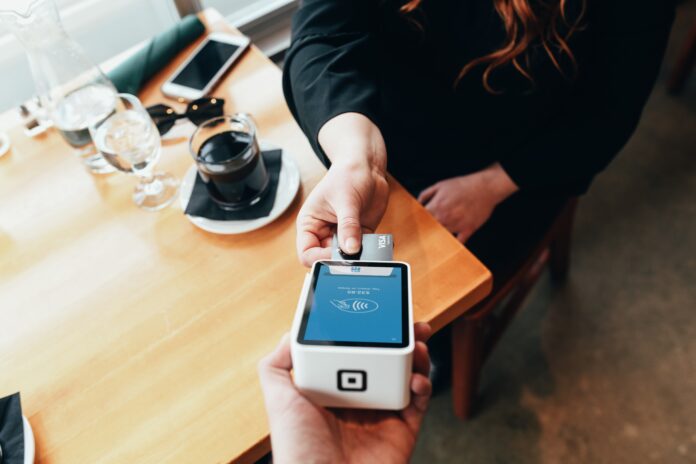The topic of tipping has resurfaced yet again — and this time, experts in American etiquette are weighing in.
A video recently made the rounds on social media in which an irate DoorDash delivery man went on a profanity-laden rant over a $5 tip from a customer he perceived to be well-off. The viral moment ultimately resulted in that driver losing his job — and revived a lively discussion on tipping etiquette.
We’ve all been there at the end of a transaction for service, faced with the prompt, “How much would you like to tip?” In some instances, the answer is easy. You enjoyed the service, worked with someone you thought was stellar, and want to show appreciation. But in many other cases, the question of tipping is mystifying. Luckily, experts in etiquette and the American service industry are demystifying the concept.
TheGrio’s own Touré set the record straight on the standard tip for dine-in service when he said, “If you go out to eat and someone serves you and takes care of everything from cooking to plating to cleaning, then you owe them a 20% tip.” He also believes that tipping a server even when the service is poor should be customary because poor service is the responsibility of management, not the server.
With that said, here are five instances in which tipping is not customary.
For counter service
This one is especially confusing. Many people wonder if they should be tipping for that $4 latte. Etiquette expert Elaine Swann reminds the public that workers behind counters earn wages; therefore, tipping is not customary. However, the practice not being customary shouldn’t stop someone from tipping if they feel so moved.
“It’s a nice gesture to offer a tip to a worker who goes above and beyond the service,” Swann told NBC. “For example, maybe you frequent the establishment regularly and they have your order memorized.”
For takeout
To be honest, this one is the most heavily debated among experts. Some say no; others find the act of someone preparing and packaging a meal for you enough “service” to warrant a tip. Then there is the fact that many of us became accustomed to tipping for takeout during the shutdowns of recent years. When ordering takeout, tipping isn’t customary but is undoubtedly appreciated.
Professionals
According to reporting by NBC, it is not customary to tip anyone who earns a salary or performs a trade. Meaning it isn’t customary (or expected) to tip doctors, lawyers, educators, landscapers, mechanics, etc.
“Not only would it not be expected, it would be highly unorthodox and very awkward,” Thomas Farley, aka “Mister Manners,” told NBC, adding, “You could be seen as attempting to curry some sort of favor or that it might be some sort of a bribe.”
However, this rule doesn’t apply to professionals in personal care like nail techs, hair stylists, tattoo artists, etc. It’s been almost 10 years since it was revealed how exploitative nail salons throughout the country can be of their workers. Often in each of these fields, the professionals have to rent their space or chair, bring in their own supplies, and give a hefty portion of their earnings to the owner. Tips – of roughly 20% or more – are a way to help them supplement their income, which can average in the mid to low $30k range.
When the event has an open bar
Despite popular belief and common practice, it is not customary to tip at open bars. Swann said to keep in mind that the event host has already paid a gratuity or will when they get the final bill. Nevertheless, even though it is not customary, it’s not bad etiquette to tip at open bars as it might be in other situations, especially if you plan to indulge throughout the evening. A dollar or two for each drink should suffice.
When gratuity is already applied
This one can trip up a lot of people. You may see on your bill some form of the phrase “gratuity included.” In that case, adding another tip is not only not customary but silly. The language can differ dramatically from establishment to establishment, so don’t hesitate to ask for clarity before settling your bill.
When it is discouraged or someone declines to accept
Lastly, you may run into situations, often in hospitality, when tipping is against policy. In those instances, you could risk getting the worker in serious trouble by tipping them. Other times, a worker may flat out decline your tip. When that happens, you should respect it and know your patronage is enough.
Image: Blake Wisz/Unsplash



































